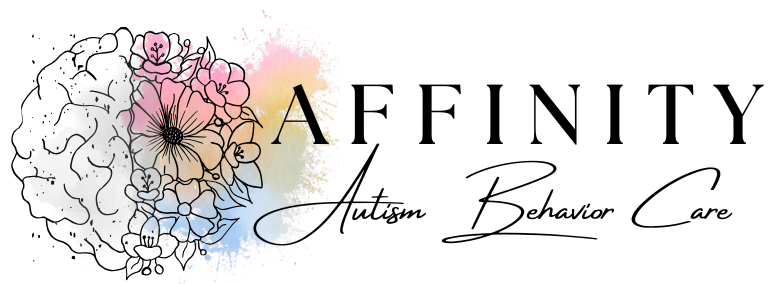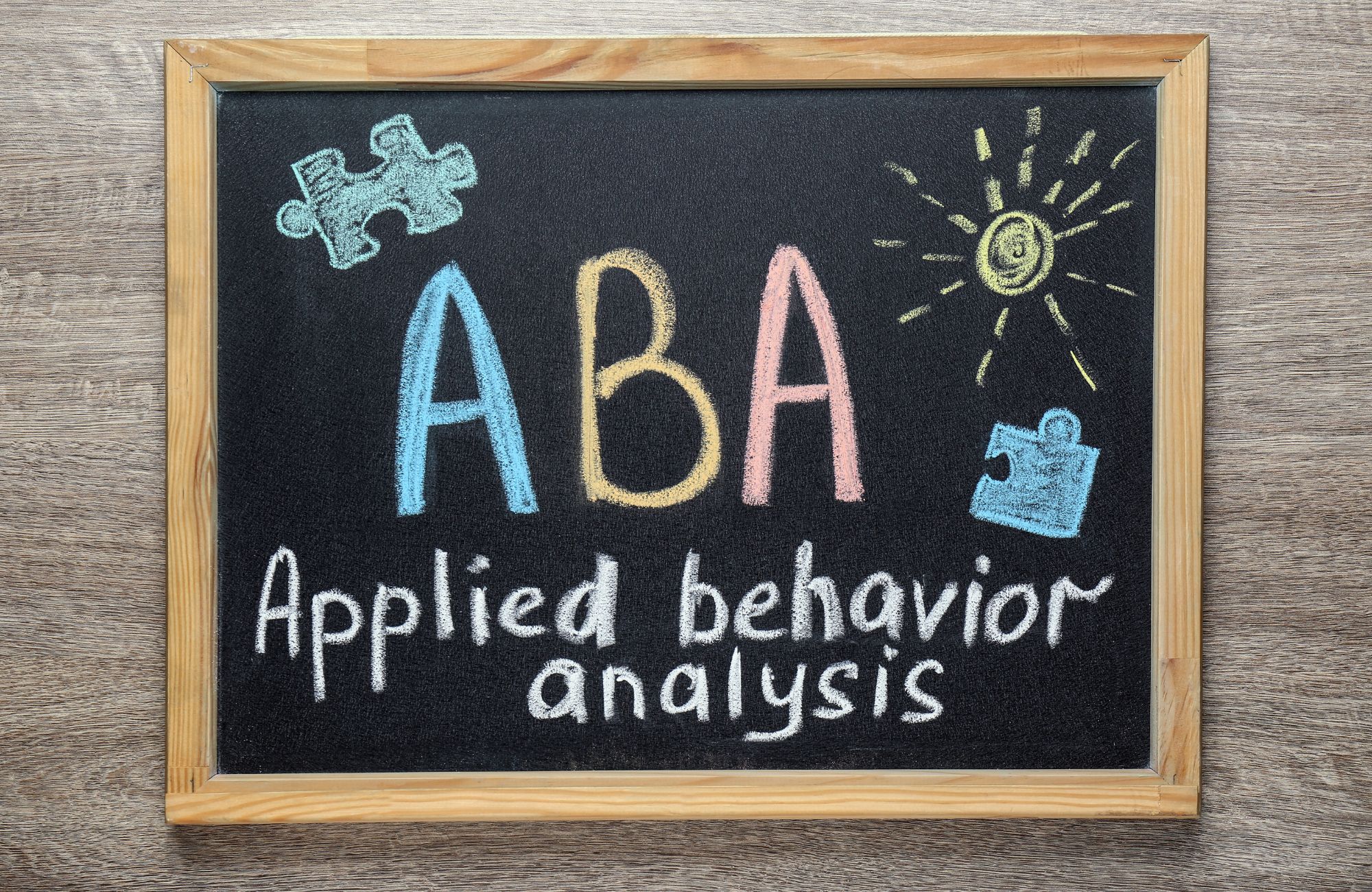Can BCBA Diagnose Autism? What Parents Should Know
If you’re a parent concerned about your child’s development, navigating the autism diagnosis process can feel overwhelming. The significance of early intervention in autism spectrum disorders cannot be overstated, as timely behavioral interventions can lead to notable improvements in language, cognitive abilities, and social skills. From initial screenings to therapy recommendations, a variety of specialists are often involved, each playing a different role in your child’s care journey.
One professional you’re likely to hear about early on is the Board Certified Behavior Analyst (BCBA). These experts are closely involved in supporting children with autism, particularly through applied behavior analysis (ABA). But an important question many parents ask is this: can a BCBA diagnose autism, or does that responsibility belong to someone else?
Understanding Autism Spectrum Disorder
Definition and Prevalence of Autism
Autism Spectrum Disorder (ASD) is a neurological and developmental condition that significantly impacts communication, social interaction, and behavior. Individuals with autism may experience challenges in verbal and nonverbal communication, forming social relationships, and engaging in repetitive behaviors. According to the Centers for Disease Control and Prevention (CDC), approximately 1 in 54 children in the United States are diagnosed with autism, with a higher prevalence observed in males compared to females. Over the years, the prevalence of autism has been on the rise, underscoring the need for increased awareness and understanding of the disorder.
Autism is described as a spectrum disorder because it manifests differently in each individual, ranging from mild to severe. Some individuals with autism may require substantial support and accommodations, while others may need minimal assistance and may even excel in specific areas. Early diagnosis and intervention are critical in helping individuals with autism develop essential skills and strategies to navigate their daily lives successfully.
What Is a BCBA?
A Board Certified Behavior Analyst is a certified professional who specializes in behavior analysis, particularly in working with individuals with developmental disabilities like autism spectrum disorder. Board-certified behavior analysts play a significant role in autism care, providing essential behavior-analytic services and working collaboratively with other healthcare professionals to improve accessibility to services and diagnostic processes. BCBAs apply the science of behavior to foster skill development, reduce challenging behaviors, and improve the quality of life for children and families.
Certification is overseen by the Behavior Analyst Certification Board (BACB), which ensures BCBAs meet rigorous academic and clinical standards. This includes completing a master’s degree, supervised fieldwork, and passing a comprehensive national exam.
What Kind of Work Does a BCBA Do?
BCBAs design and oversee behavior analytic interventions rooted in applied behavior analysis. They use data and direct observation to identify behavioral patterns and implement treatment plans tailored to each child’s development and needs.
In autism therapy, they focus on improving areas like:
- Communication abilities
- Daily living skills
- Social interaction
- Adaptive behaviors
- Behavioral challenges such as aggression, tantrums, or self-injury
Their work is supported by Registered Behavior Technicians (RBTs) who provide hands-on implementation under the BCBA’s supervision.
Can a BCBA Diagnose Autism?
No, a BCBA cannot diagnose autism. While they are deeply involved in autism therapy, they are not licensed to conduct diagnostic evaluations. BCBAs play a crucial role in behavioral assessment, observing and managing behaviors in individuals with Autism Spectrum Disorder (ASD). However, they do not typically diagnose the condition due to potential conflicts of interest. This underscores the importance of a multidisciplinary team approach for accurate diagnosis, which includes professionals specifically trained in this area. Diagnosing autism requires a formal diagnosis by a qualified medical or mental health provider.
The BACB explicitly states that BCBAs are not trained or licensed to diagnose mental disorders or developmental disabilities, including autism spectrum disorder. Their expertise lies in behavior change and treatment, not in medical or psychological assessment.
Why Diagnosis Requires Licensed Medical Professionals
To diagnose autism, a clinician must perform a comprehensive evaluation that includes standardized testing, behavioral observation, and developmental history analysis. This level of clinical decision-making falls under the authority of licensed medical professionals.
These professionals are trained not only to identify autism but also to rule out other conditions like attention deficit hyperactivity disorder, intellectual disability, or co-occurring mental health issues that may affect the child’s behavior.
Who Can Diagnose Autism?
The assessment and diagnosis process for autism spectrum disorder is typically handled by professionals such as:
- Developmental pediatricians
- Child psychologists or clinical psychologists
- Pediatric neurologists
- Psychiatrists
- Licensed clinical social workers (in specific diagnostic teams)
These individuals are licensed to conduct psychological evaluations, administer formal testing tools, and interpret behavioral data to arrive at an accurate diagnosis.
Multidisciplinary Approach to Autism Diagnosis
A multidisciplinary approach is crucial in diagnosing autism spectrum disorder. This approach involves a team of professionals, including psychologists, psychiatrists, pediatricians, speech-language pathologists, and occupational therapists, who collaborate to assess an individual’s developmental history, behavior, and cognitive abilities. Such a comprehensive evaluation is essential to accurately identify the presence and severity of autism.
The diagnostic process typically includes a combination of clinical observations, behavioral assessments, and standardized tests. Two commonly used tools in the assessment process are the Autism Diagnostic Observation Schedule (ADOS) and the Autism Diagnostic Interview-Revised (ADI-R). These tools enable clinicians to evaluate an individual’s social interaction, communication skills, and repetitive behaviors, providing a thorough understanding of the individual’s developmental profile.
What Tools Are Used in Autism Diagnosis?
Autism diagnosis is not based on one test alone. Instead, it involves multiple steps and tools, such as:
- Autism Diagnostic Observation Schedule (ADOS-2): A gold-standard assessment that evaluates communication, play, and social behaviors.
- M-CHAT (Modified Checklist for Autism in Toddlers): A screening tool used during early pediatric visits.
- Developmental history interviews: Provide context about developmental milestones and behavioral patterns.
- Cognitive and language assessments: Rule out other developmental conditions and help shape the appropriate treatment plan.
Understanding the Assessment Process
The assessment process begins when parents or caregivers express concerns about autism symptoms such as delayed language, lack of eye contact, repetitive behaviors, or resistance to change.
A pediatrician may begin with a developmental screening, and then refer the child to a specialist for a full comprehensive evaluation. The evaluation involves interviews, observational assessments, and collaboration between the professionals involved.
This diagnostic process aims to ensure families receive both an accurate diagnosis and guidance toward the next steps in care.
Signs That May Indicate Autism
Recognizing early signs of autism can help families access help sooner. Common signs may include:
- Avoiding eye contact or failing to respond to their name
- Delayed speech or limited verbal communication
- Intense focus on specific interests or objects
- Repetitive motions such as hand-flapping or spinning
- Difficulty with social interaction or imaginative play
These signs may appear as early as 18 months. The earlier they are identified, the sooner a child can benefit from early intervention strategies.
Why Early Intervention Matters
Early intervention is a cornerstone of autism therapy. Children who begin services between ages 2 and 4 often make significant progress in communication skills, adaptive skills, and behavior regulation.
Early access to ABA therapy, occupational therapy, or speech therapy can help reduce problem behaviors, increase independence, and support long-term success.
What Happens After Diagnosis?
Once a child receives a formal diagnosis, families are often referred to autism therapy services that include ABA, speech-language support, and sometimes occupational therapy.
At this stage, the BCBA professionals become key players. They begin by conducting behavioral assessments, observing the child’s behavior in natural settings, and consulting with caregivers.
Conducting Behavioral Assessments
BCBAs use structured observations, caregiver interviews, and data collection to conduct behavioral assessments. These assessments help determine:
- The functions behind challenging behaviors
- The child’s current skill set in areas like play, communication, and social interaction
- Environmental triggers or reinforcers influencing the child’s behavior
This process is foundational to developing an individualized treatment plan based on the child’s needs.
What Is an Individualized Treatment Plan?
An individualized treatment plan outlines therapy goals tailored to the child’s strengths, limitations, and long-term objectives. Goals may include:
- Teaching functional communication
- Improving daily living skills like dressing or toileting
- Reducing aggression or self-injury
- Enhancing social interaction with peers
These plans are not static, they evolve with the child’s progress and are adjusted as needed.
How BCBAs Implement Treatment Plans
BCBAs supervise the delivery of treatment through behavior-analytic services, guiding RBTs and family members to ensure consistency across settings.
Their work includes:
- Implementing individualized treatment plans in home or school settings
- Tracking progress with data
- Training parents to use ABA strategies in daily routines
- Adjusting interventions to support skill generalization
Through this process, BCBAs help children lead a more independent life.
Role of RBTs and Other Professionals
Registered Behavior Technicians (RBTs) work under the BCBA’s direction to carry out therapy sessions. While RBTs provide direct support, the BCBA ensures that the treatment remains aligned with clinical goals.
Other professionals like occupational therapists, speech-language pathologists, and special education teachers may also collaborate to provide a well-rounded support system.
Can You Begin ABA Without a Diagnosis?
In most cases, a formal diagnosis is required to begin insurance-covered ABA services. Some families may pursue private-pay options or school-based behavioral support before diagnosis, but coverage and access may be limited.
Starting with a licensed medical professional ensures your child receives both a diagnosis and an appropriate treatment plan.
What If You Suspect Autism?
If you believe your child is showing signs of autism, take these steps:
| Step |
Action |
Professional |
| 1 |
Monitor and document behaviors |
Parent or caregiver |
| 2 |
Request a developmental screening |
Pediatrician |
| 3 |
Get referred for evaluation |
Developmental pediatrician, psychologist |
| 4 |
Receive diagnosis |
Licensed clinician |
| 5 |
Begin autism therapy |
BCBA and care team |
These steps help ensure your child receives appropriate support based on their developmental profile.
Access to Autism Diagnosis and BCBA Services
Disparities in Access to Autism Diagnosis and Treatment
Despite the critical importance of early diagnosis and intervention, disparities in access to autism diagnosis and treatment persist. Factors such as geographic location, socioeconomic status, and cultural background can significantly impact a family’s ability to obtain necessary services. In some regions, there may be a shortage of professionals trained in autism diagnosis and treatment, making it challenging for families to access the support they need.
Additionally, disparities exist in access to Board Certified Behavior Analyst (BCBA) services. BCBAs specialize in applied behavior analysis (ABA) and provide essential behavioral assessments and interventions for individuals with autism. However, the availability of BCBAs can vary widely depending on the location, and some families may encounter difficulties in accessing these services.
Efforts are underway to address these disparities and improve access to autism diagnosis and treatment. Initiatives include increasing the number of professionals trained in autism diagnosis and treatment, expanding telehealth services, and developing culturally sensitive assessment and intervention tools. By addressing these disparities, we can ensure that all individuals with autism have access to the services they need to thrive.
Conclusion
A BCBA cannot diagnose autism, but their involvement becomes essential after a licensed medical professional provides a formal diagnosis. BCBAs use their expertise in applied behavior analysis to design and implement individualized treatment plans that help children with autism strengthen communication abilities, improve social interaction, and develop daily living skills. By conducting behavioral assessments, monitoring progress, and adjusting strategies over time, BCBAs support long-term development and foster greater independence. Their work plays a critical role in turning diagnostic insights into practical, life-enhancing outcomes for both the child and their family.
At Affinity ABC, we provide personalized, evidence-based care designed to help children with autism thrive in every area of their lives. Our services are built around each child’s unique needs, goals, and strengths, ensuring that families receive the most effective and compassionate support possible. Whether your child needs in-home therapy, structured social skills development, or tailored school-based support, our dedicated team of professionals is here to guide you through every stage of the journey. Take the first step toward unlocking your child’s full potential. Contact us today to learn more about our services and how we can support your family.
FAQs
Who can test for autism?
Autism can be evaluated by licensed medical and mental health professionals who are trained in the assessment and diagnosis process. This includes developmental pediatricians, child psychologists, clinical psychologists, neurologists, and psychiatrists. These professionals use standardized tools like the Autism Diagnostic Observation Schedule (ADOS), structured interviews, and developmental history reviews to arrive at an accurate diagnosis.
What credentials do you need to diagnose autism?
To diagnose autism, a clinician must hold a valid license in either medicine or psychology and possess training in developmental disabilities and autism spectrum disorder. Credentials may include an MD, DO, PhD, or PsyD with a specialization in child development or neuropsychology. They must also be proficient in using formal diagnostic tools and conducting comprehensive evaluations.
What types of professionals typically give the autism diagnosis?
The most common professionals involved in autism diagnosis are developmental pediatricians, clinical psychologists, and pediatric neurologists. These individuals have experience identifying autism symptoms, distinguishing between overlapping conditions like ADHD, and conducting behavioral assessments. Their role is critical in ensuring an accurate diagnosis and guiding families toward appropriate support and therapy services.
Can a BCBA diagnose ADHD?
No, a Board Certified Behavior Analyst (BCBA) is not licensed to diagnose autism, ADHD, or other mental disorders. Diagnosis must come from a licensed medical professional or psychologist who has undergone specialized training in behavioral and developmental conditions. BCBAs can, however, support individuals with ADHD through behavioral interventions and individualized treatment plans once a diagnosis has been made.









